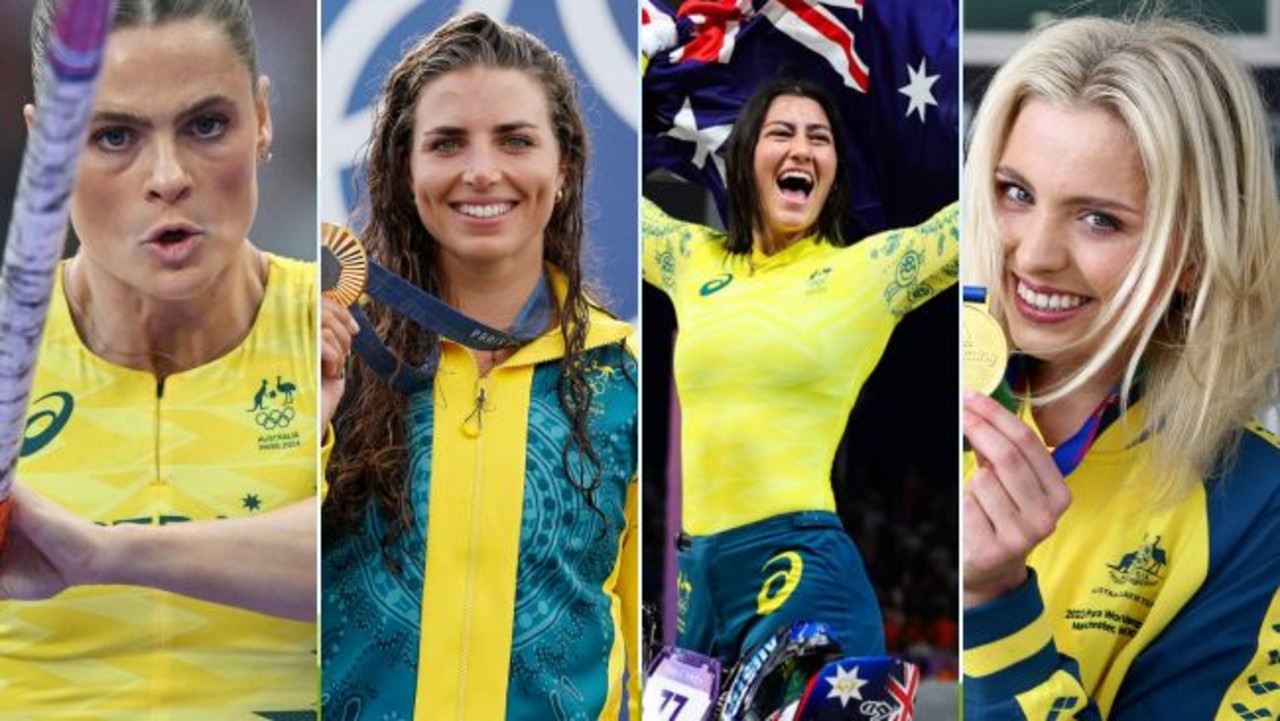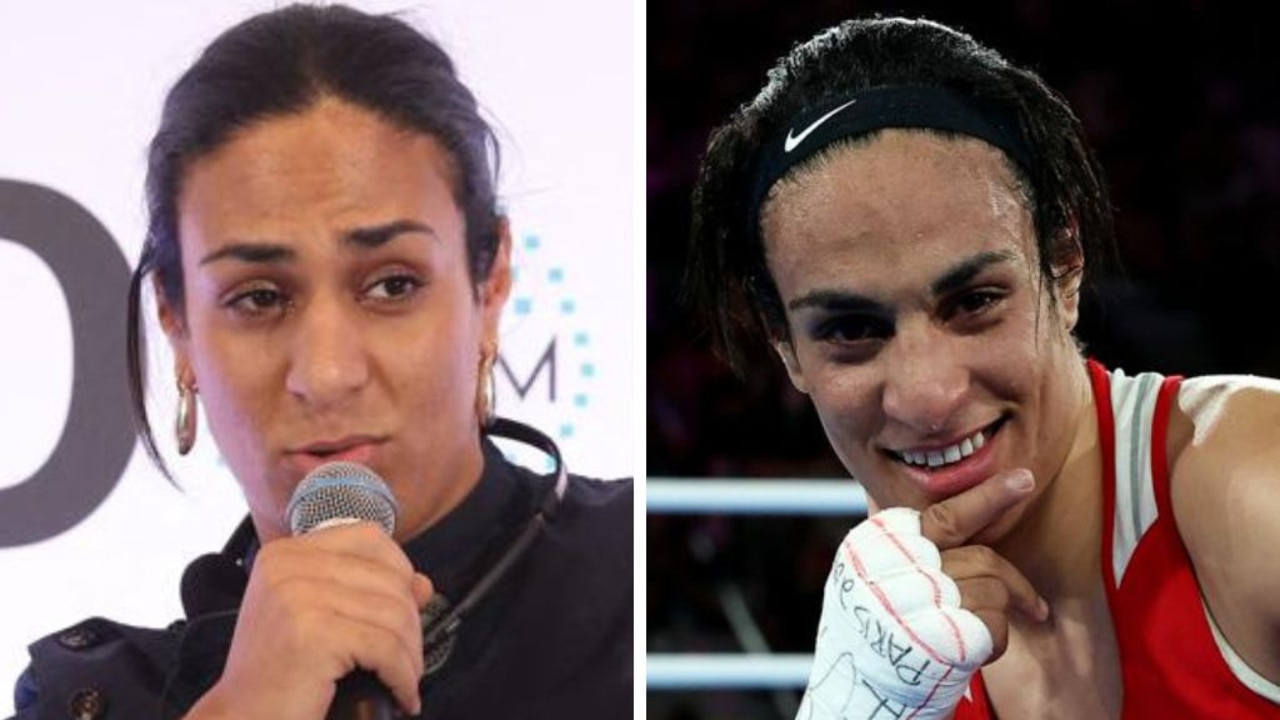Australian couples heading to the Rio Olympics will abstain from sex during competition time
WITH so many Australian athletes pairing up in the Olympic team for Rio, the age-old issue of sex and sport has resurfaced, writes Amy Harris.
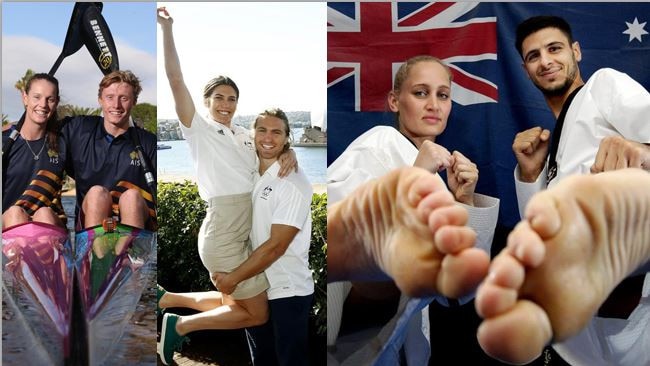
Olympics
Don't miss out on the headlines from Olympics. Followed categories will be added to My News.
IT’S THE different kind of contact sport you don’t always hear about at the Olympics.
When two Olympians are also a couple, the question of physical relations before competition is the subject of endless discussion, with extensive studies dedicated to whether or not sex diminishes or enhances performance.
Such was the concern during the 50s and 60s that — according to one retired Olympian — coaches would hand out potassium nitrate (a substance used to prevent erections) to athletes in the hope it would inhibit sexual desire.
Today the attitude is far more relaxed with couples as well as single athletes allowed to decide for themselves whether or not they choose to abstain.
But given Olympic organisers are set to distribute 200,000 condoms to athletes when Rio kicks off on August 5, sex is as much a part of the Games as sport itself.
Of the eight Australian couples heading to Rio all admit they take a different approach — from avoiding contact entirely to sneaking away for some ‘private’ time, despite the fact athletes in a relationship are forbidden from sharing a room.
“There are ways around that,” laughs Alyce Burnett, one of Australia’s K2 500m sprint kayak hopes in Rio and girlfriend of fellow kayaker Jordan Wood.
“It’s one of those things that can be tricky because we compete at different times and we don’t room together so we generally just see how we feel day by day.
“But my birthday falls during the Games so we might have to make an exception,” she laughs.
Wood, too, admits athletes all share their own different theories on whether pre-competition sex is ‘good’ or ‘bad’.
“There seems to be a new study about it every week,” says Wood, the world under-23 champion and frontrunner for K4 1000 gold.
“I don’t really think about whether or not it’s a no-no in terms of competition but just in terms of focusing in the lead-up to a racing it’s probably not something you go out of your way to do.
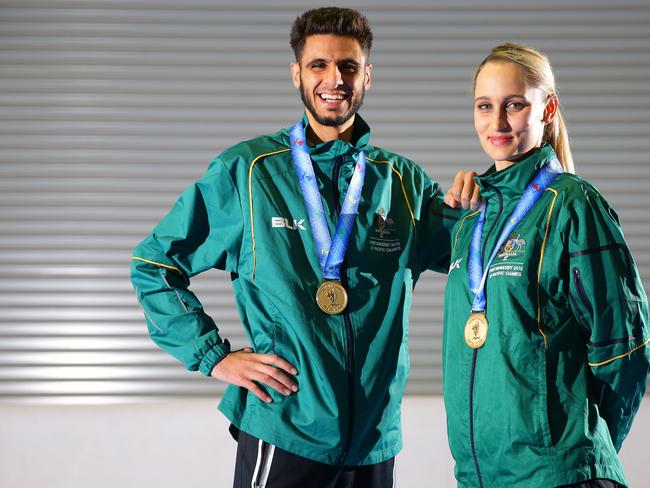
“But it depends on the situation and how much time you get to spend with your partner in the village.
“Because I compete after Alyce there’s not a lot of time that we are spending together until after all our events are over anyway.”
Because village rules stipulate couples are restricted from bunking in the same room, some couples in search of intimate time are forced to find creative ways to enable interaction.
The most common tactic is simply to send the roommate out for a ‘stroll’, an oft-referenced inside joke in the Olympic village.
Even taekwondo hopefuls Carmen Marton and Safran Khalil, who have wed under Muslim law and are set to marry in an Australian ceremony following the Games, are not permitted to share a room despite the fact both represent Australia in the same event.
The pair employs a ‘general abstinence’ rule during competition but Marton admits the policy is ‘flexible’.

“The main thing is you can’t let anything affect your performance,” says Marton, Australia’s first-ever taekwondo champion who is set to retire following Rio.
“There have been tournaments where it hasn’t made a difference and there have been others where we have completely abstained and I have found that beneficial so my preference is to not.”
It’s an approach shared by her partner though Khalil says simply spending time together is more important than physical interaction.
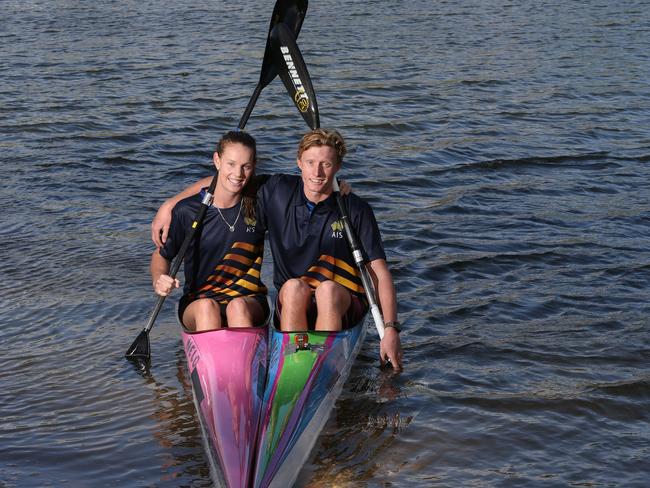
“We expect that it’s going to be quite difficult being alone and we know we might not be able to be intimate but as long as we have time together, that’s the main thing.”
Sex aside, couples who compete at Olympic level face other challenges — particularly when they represent their country in the same sport.
Swimming couple and gold medal contenders Mitch Larkin and Emily Seebohm will have been dating almost a year when they hit the pool at Rio and they have previously said they try to keep their professional and personal lives separate.
“Basically, when we get on the pool deck we’re not boyfriend and girlfriend, we’re just friends who know each other really well,’’ Seebohm said early this year.
Australia’s rugby sevens glamour couple Charlotte Caslick and Lewis Holland are not only set to compete for both the women’s and men’s teams respectively in Rio but also live and train together on Sydney’s northern beaches.
The pair, who met in Brisbane before relocating to Sydney to prepare for Rio, occasionally employ a ‘no rugby talk’ policy during the evenings.
“But it doesn’t always last very long,” says Holland, who singles out just one downside to living, training and competing together.
“You can’t do cheeky things,” he laughs.
“We know each other’s schedule inside and out. We both finish training at the same time. So there’s no sneaking off for a cheeky beer here or there. None of that. But other than that there isn’t really much about it that I don’t like.
“It’s great having someone to be with who really understands exactly what you’re going through all the time. It’s a level of understanding that’s pretty unique.”
Charlotte said the benefit of Rio was that for once they would be competing in the same place, with their international careers meaning they spend a fair bit of time playing in different parts of the world.
“We play in different time zones a lot so one of us is usually asleep while the other one is playing, so we tend to watch a stream of each other’s games rather than seeing it as it happens,” she says.
“It will be great to share this experience.”
Among the other couples are Alyce Burnett, one of Australia’s K2 500m sprint kayak hopes in Rio fellow kayaker Jordan Wood, who say their competition schedule means they won’t see much of each other until after they have competed.
“Because I compete after Alyce there’s not a lot of time that we are spending together until after all our events are over anyway,” said Jordan.
Originally published as Australian couples heading to the Rio Olympics will abstain from sex during competition time

 We expect that it’s going to be quite difficult being alone and we know we might not be able to be intimate
We expect that it’s going to be quite difficult being alone and we know we might not be able to be intimate 

